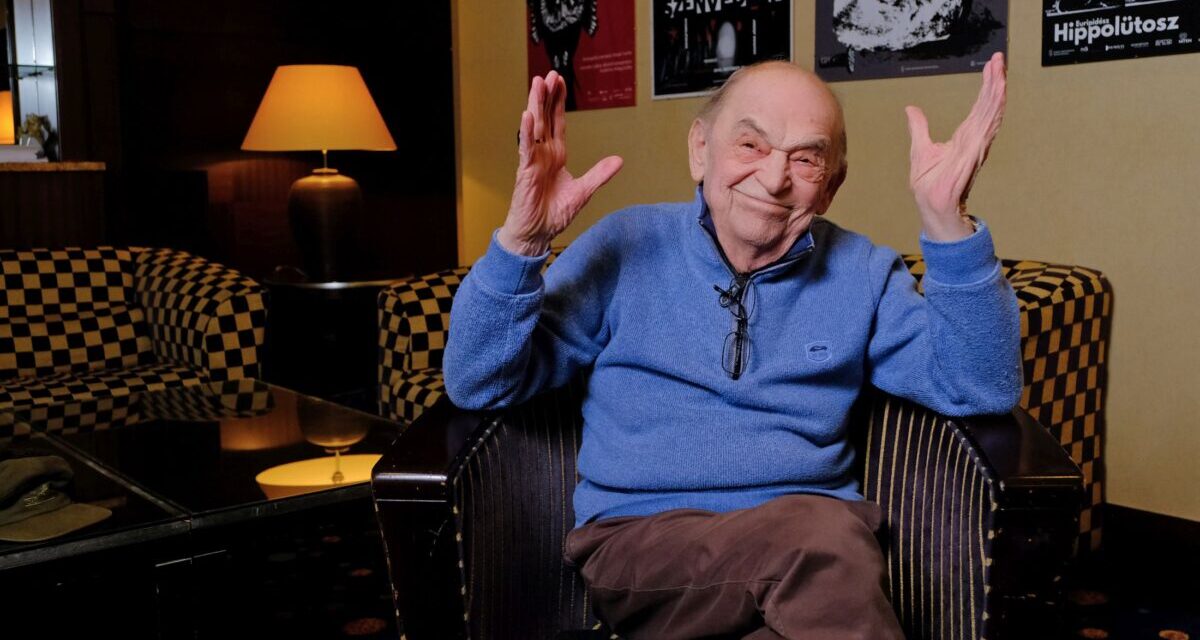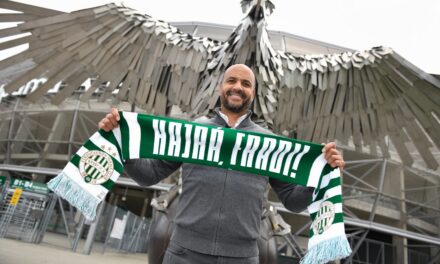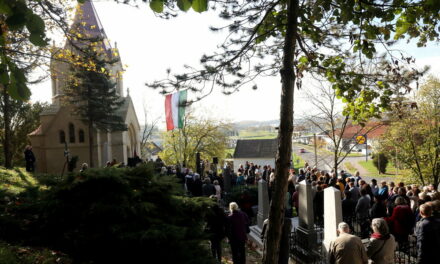The Kossuth and Jászai Mari prize-winning actor, director, worthy and excellent artist, actor of the nation celebrates his birthday today.
Gyula Bodrogi was born in Budapest in 1934. His father was a hunter, who also fell in love with this pastime with his son. As a child, he trained to be a teacher, he wanted to be a mathematics and physics teacher, but in the end he committed himself to the arts. He started his career as a folk dancer, from 1951 he was a solo dancer in the SZOT ensemble for three years. In 1954, he applied to the Academy of Theater and Film Arts (University of Theater and Film Arts since 2000) because he wanted to become a director.
In the end, the course did not start, and he was redirected to become an actor, receiving his diploma in 1958.
His first contract was with the Attila József Theater, and he remained loyal to the Angelföld company for more than twenty years.
In 1982, he joined the Vidám Színpad, where he was an actor, artistic director, director-director, and then, between 1996 and 2002, the managing director of the Vidám Színpad Ltd.; In 2002, he was elected a permanent member of Vidám Színpad. In 2003, at the invitation of director Tamás Jordán, he signed a contract with the National Theater, of which he has been a member ever since. From 1975 he taught at the College of Theater and Film Arts.
As a freshman, he mainly played character roles in contemporary and classic plays, but his comedic talent was soon discovered, and from then on he became one of the most characteristic representatives of the so-called light genre.
He was able to use his musicality and excellent dancing skills in music and dance pieces. His memorable roles: Napoleon (in Sardou's play The Outspoken Woman), Tóbiás Böffen (in Shakespeare's Vízkerzézt), the King of France (in János Kacsóh's valiant Pongrác), Peacock (in Brecht's Beggar's Opera), Bálint (in the Three Nights of Love by the Hubay-Vas-Ránki author trio) , Rezső Seress (in Péter Müller's Sad Sunday), Julien, the dentist (Barillet-Grédy in A cactus flower). As a director, he also preferred lighter, mainly musical plays (I love to get married, A black and a blonde, Pajzán stories, Lovers from Ancona, Servants of two masters, Dollar Pipi).
Thanks to his easy naturalness and deep character portrayal, he quickly became the audience's favorite as a film actor.
His first film, Külvárosi legend, was directed by Félix Máriássy in 1957, after which he shot almost every year. His memorable films were Házasság mál séféstés (in which his then-wife Mari Törőcsik was his partner), Swan Song, Twenty Hours, Study on Women, Run to Catch Up, Beauties and Fools, How do we forget the greatest love of our lives? He played a broken family man in Dániel the Lucky, he was the grumpy holiday caretaker in Idő van morgorva, he excelled in the four main roles in Titania, Titania, or the night of the stuntmen, winning the award for best male performance in 1989 in Vevey, Switzerland, and in 1991 in Gabrovo, Bulgaria . In the 2000s, he also appeared in several cinemas, such as The Mohács Disaster, Üvegtigiris, Magyar vándor, Világszám! in the movies.
His most popular roles are connected to television.
Süsü, the good-hearted one-headed dragon, spoke in his hoarse voice, "Please, the next one!" (Dr. Bubó) Sergeant Major and the vulture crow of Vuk. In the highly successful series Linda, he played the father of the title character, and is still a popular character in various shows and cabarets.
Gyula Bodrogi is known to be a passionate hunter and cook.
In 1993, he published a book about his pleasant pastimes entitled The hunter sometimes cooks, in which he shared his favorite hunting stories and recipes. In 2014, a volume was published under the title 80 years, 80 recipes, 80 stories, and in 2021 I tell wild animals.
His book Irkafirka was published in 2009, in which diary excerpts, writings intended for radio programs, and aphorisms recall the history of the artist's seventeen college courses, theater memories, memorable teachers and colleagues.
In 2020, the Kossuth Prize-winning theater director Péter Léner published his book of interviews about him entitled Bodrogi.
For his artistic work, among others, he received the Jászai Mari Award in 1962 and 1967, the title of Merited Artist in 1973, Outstanding Artist in 1983, and the Kossuth Award in 2005. Since 2007, he has been awarded the honorary title of actor of the nation. In 2009, the XIII. district, was elected honorary citizen of Budapest in 2021. In 2012, he received the Prima Award and the Audience Award of Prima Primissima. In 2019, he was awarded a Lifetime Achievement Award by the Hungarian Film Academy Association and the Hungarian Academy of Arts, and in 2021 he was recognized by the Hungarian Hollywood Council with the Adolph Zukor Award. In 2023, he was awarded the Zsigmond Gróf Széchenyi Memorial Medal.
In May 2022, the artist was admitted to the intensive care unit twice due to breathing difficulties, but he was back on stage in July.
In March of this year, he fell in the theater and broke a bone in one of his arms, but the injury did not deter him from work.
As he said in an interview: "The Good Lord will call you from the stage. I asked him for this, and if he likes it, he will keep it. Until then, I want to live, for an actor to stay on stage, to entertain and dazzle, because that's his job".
He had a son, Ádám Bodrogi, from his second wife, Ági Jászai Mari Award-winning actress Voith, who presented him with two grandchildren.
Gyula Bodrogi is currently playing in several plays at the Nemzeti, for example, he plays the Secretary in Ferenc Molnár's one-act play One, Two, Three, and on April 15, a birthday gala will be held in his honor.
MTVA Press Archive
Cover photo: Gyula Bodrogi
Source: Tamás Förster, Zsolt Szabó Eöri













